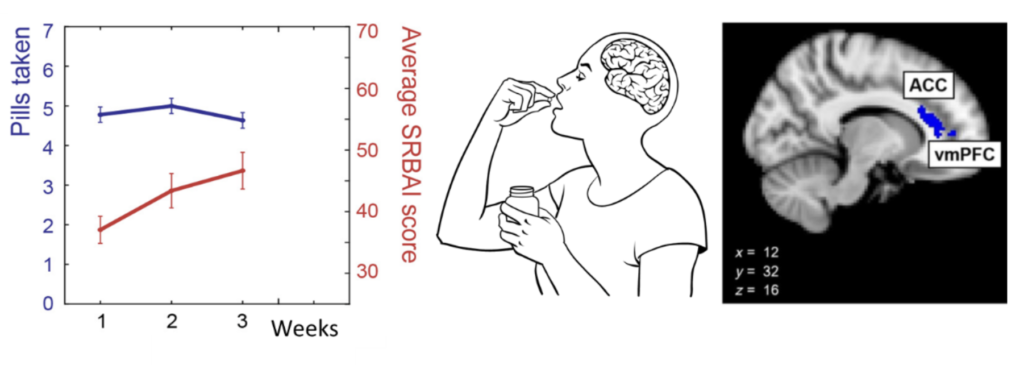Why are some people rely on habits more ‘creatures of habit’ than others?
In this study, which will be published in the Journal of Cognitive Neuroscience, we investigated what determines why some people automate a desired routine more quickly than others. In this case we studied the routine of taking a (placebo) pill daily for 3 weeks. Pill intake was measured in young, healthy adults using electronic pill boxes, and subjects reported daily how automatically they did this. We found that conscientiousness plays a role as a personality trait; but also how structured someone’s life is. If you have more structure, you form a new (desired) habit faster.
Importantly, we also determined whether differences in (white matter) brain connectivity have predictive value for who is more (or less) a ‘creature of habit’. In summary, our findings suggest that striatal connections to cortical regions involved in goal-directed and cognitive control are a negative predictor of automatizing daily pill intake. In other words, people with strong connections to cognitive control areas reported more automatic pill taking. This fits well with the idea that habits have both advantages and disadvantages, namely: efficient and smooth execution of routine behavior versus a loss of flexible control.
Reference: Van de Vijver, I., Verhoeven, A.A.C., & de Wit, S. (2023). Individual Differences in Corticostriatal White-Matter Tracts Predict Successful Daily-Life Routine Formation. Journal of Cognitive Neuroscience, 35(4), 571-575

